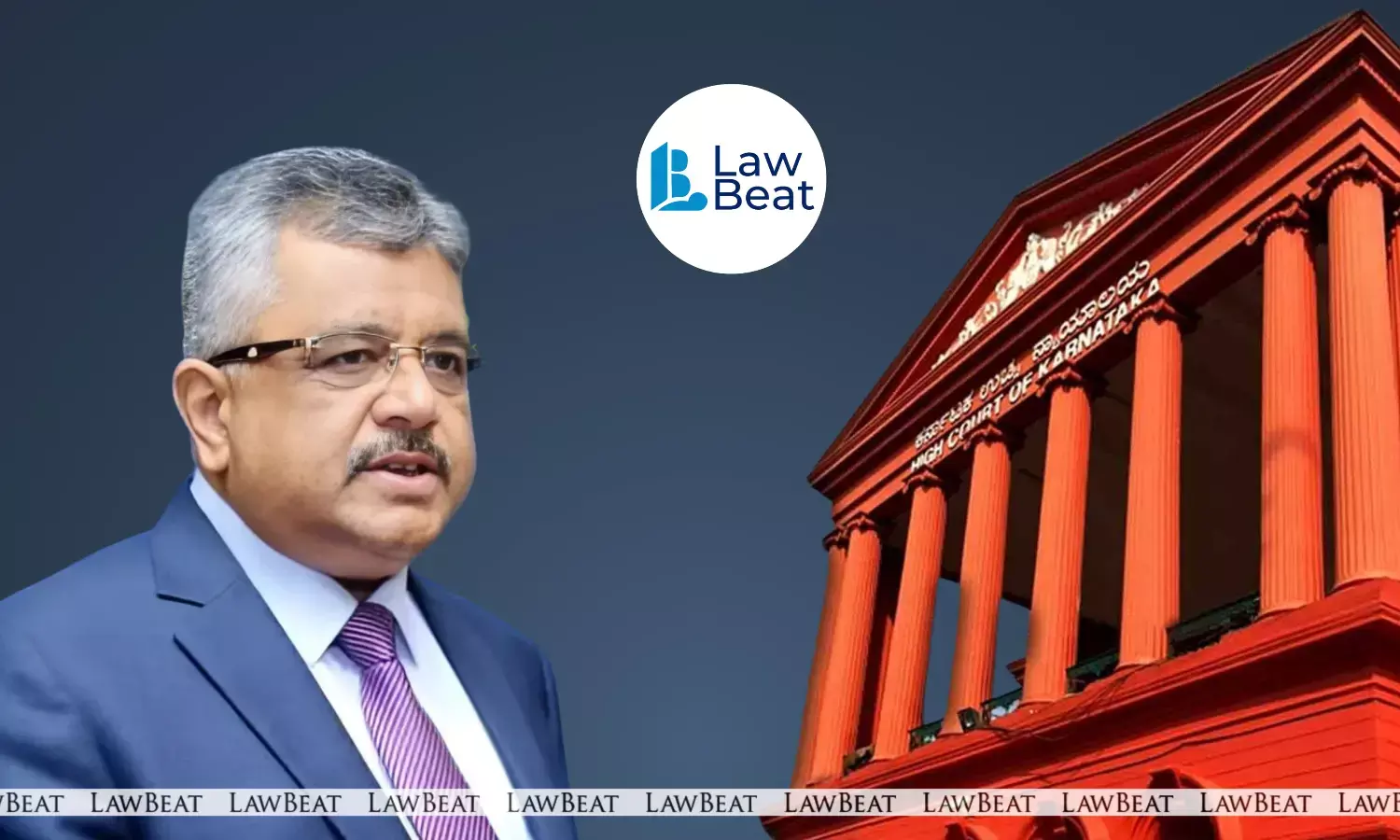'Re-Indianisation of Indian Judiciary Must Start Now’: SG Tushar Mehta Tells Karnataka HC in X Corp Case

In a significant remark during the hearing on X Corp’s challenge to the Union Government’s content takedown orders, Solicitor General Tushar Mehta on Thursday told the Karnataka High Court that "reindianisation of the Indian judiciary must start now".
Appearing for the Centre, SG Tushar Mehta made the statement while urging the court to examine the broader context of the issue and avoid adopting a “Western lens” to adjudicate matters involving India’s digital ecosystem and intermediary regulation.
The matter involves X Corp (formerly Twitter) contesting the legality of the government’s content removal directives and the use of the Sahyog portal under Section 79(3)(b) of the IT Act. The social media company has argued that the portal allows arbitrary censorship and bypasses the safeguards laid down under Section 69A and the Supreme Court’s ruling in Shreya Singhal v. Union of India.
The bench of Justice M. Nagaprasanna is hearing the case. The petitioner has been supported by Digipub, a collective of 92 media organisations, which has raised concerns over transparency and the impact on journalistic freedom.
The Solicitor General highlighted that the Shriya Singhal judgment heavily relied on the judgment in Reno v. American Civil Liberties Union (1997), which was the first major US Supreme Court ruling on the regulation of materials distributed via the Internet.
SG Tushar Mehta said, "Our jurisprudence of freedom of expression is very different from theirs. There, burning their national flag is an acceptable medium to express anguish with the government, but in India, it is a sacrilege and a punishable offence".
Furthermore, he highlighted the scale and significance of the internet in India.
SG Mehta pointed out that the country has over 90 crore users, with a new user added every three seconds. “It is a potent weapon in the form of the internet,” he said, while cautioning against the unchecked commodification of human attention. Highlighting the government's concerns, he stated that cyber crimes have surged alongside the rise in mobile and internet users in India. In 2002, there were 808 cases; in 2010, 1,322; in 2015, over 11,000; 15,000 in 2020; and a staggering 65,000 in 2022.
He said that the US court judgment came 28 years ago. Now, the times have changed and the realities of changed. Moreover, in the USA itself, the thought process of judges has evolved, gradually diluting the Reno judgment.
SG Mehta highlighted that the MHA’s portal, set up in 2019, received over 5 lakh cyber crime complaints by 2024.
"So, freedom of speech isn't the only concern before this court, the real and pressing issue, backed by data, is the global rise in cybercrime," he said.
"Now, everyone has a computer in their pockets. If a US court considers this issue, it will also re-examine the Reno judgment. Now India's telephone subscribers have reached 190 crores", he submitted.
To this, Justice Nagaprasanna also said, "Yes. Now there is a paradigm shift in the medium and everything too".
Later on during the hearing, he added, "When it (Reno judgment) was rendered, the modem speed that was being used for the internet was 36 Kbps and there was a dial-up connection. Today, we have gone far ahead of that".
Further, on the issue of how social media platforms operate, the Solicitor General said that they work on a business model that monetises user behaviour, disguising it with terms like “more engagement” to drive profit. “As internet users, we think we are the customers. In fact, we are the products,” Mehta said, adding that algorithms are being designed to manipulate user behaviour for revenue generation.
He stressed that these social media intermediaries, in essence, edit the content shown to their users. Their algorithms are designed that way that they target the user based on their cast, creed, religion, and region, he emphasised.
Mehta also mentioned the recent Beer Biceps (Ranveer Allahabadia) incident, and informed the high court that while hearing Allahabadia's plea to club the multiple FIRs lodged against him, the Supreme Court asked him, as Solicitor General, to work with the government and draft regulations to address such content on social media, ensuring they are effective without encroaching upon anyone's freedom of speech and expression.
Therefore, he said that "social media intermediaries cannot claim absolute exemption from rules that apply to all other forms of media".
Arguing in favour of regulatory checks, Mehta defended the government’s policy shift, stating that the Sahyog portal was not a tool for censorship, but a necessary mechanism for coordination and compliance among intermediaries in light of India’s unique internet landscape.
The hearing is ongoing, and the Centre will continue its submissions tomorrow.
Case Title: X Corp vs UOI
